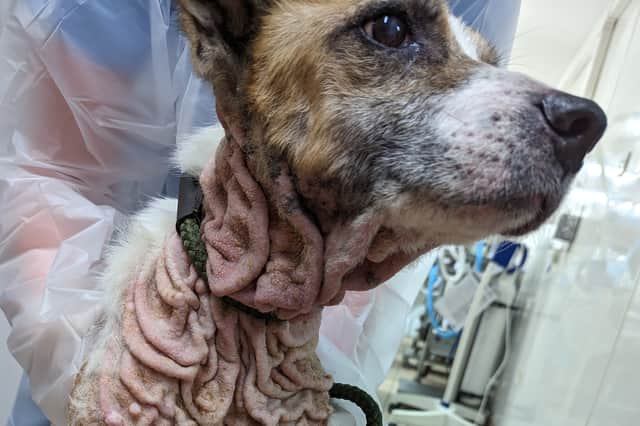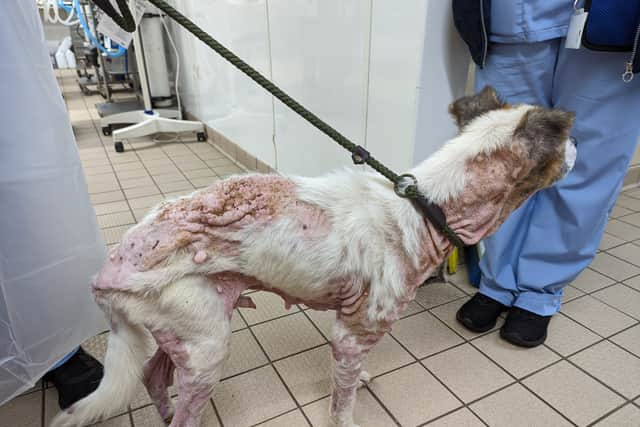RSPCA: Owner failed to get vet care for dog with skin condition - leaving pup nearly bald and unable to walk
and live on Freeview channel 276
Warning: this story contains graphic content and photos which may be distressing.
A Manchester man who failed to get vet care for his dog's chronic skin disease has been banned from owning canines for the next decade.
Advertisement
Hide AdAdvertisement
Hide AdFrank Rogers, 68, of Monsall, earlier pleaded guilty to one offence under the Animal Welfare Act, after his terrier cross Buster was found almost bald of fur, with ear disease and ingrown nails so bad he was unable to walk. Rogers has now been sentenced at Manchester Magistrates’ Court, where he was banned from owning dogs for 10 years and handed a 12-month community order, part of which will require him to complete 100 hours unpaid work.
RSPCA animal rescue officer Helen Chapman went to the defendant’s home on 14 April this year, after the animal charity received a report of a “bald dog” at the property. In a statement to the court, the officer said: “The dog was laying on its side on a chair, covered over with a blanket apart from his head and he made no attempt to move. I could see Buster was in very poor condition, with bald, dry pink skin.


“The defendant said that when he had got the dog from a friend a year ago he was okay. He said he had only just lost his hair and he got something from an online company," she continued.
Rogers agreed to let the animal rescue officer take Buster to the RSPCA Greater Manchester Animal Hospital. Unfortunately the dog was in such poor health that their vets said the kindest course of action was to put him to sleep, and end his suffering.


Advertisement
Hide AdAdvertisement
Hide AdThe vet who examined Buster found he was suffering from infections in both ear canals, overgrown nails and alopecia which had caused extensive irritation. Buster was also underweight with a low body condition score of just two out of nine, they found.
The vet stated that in her expert opinion, the severity of Buster’s condition suggested that he had been suffering for many weeks. “His overgrown nails will have been a source of pain. Secondary changes such as lichenification of the skin and stenosis of the ears indicated the skin and ear disease was chronic in nature," she said.
"The ear infections too will have caused discomfort and would have made it difficult for him to settle. He was shaking his head and getting no relief,” said the vet.
As well as his dog ban and community order, Rogers was also ordered to pay court costs of £100 and a victim surcharge of £114.
Advertisement
Hide AdAdvertisement
Hide AdThis comes after the RSPCA launched its Cancel Out Cruelty campaign, to raise funds to help its frontline rescue teams continue to save animals from cruelty and abuse - and to raise awareness about how to stop cruelty to animals for good. For more information, you can visit the RSPCA website.
